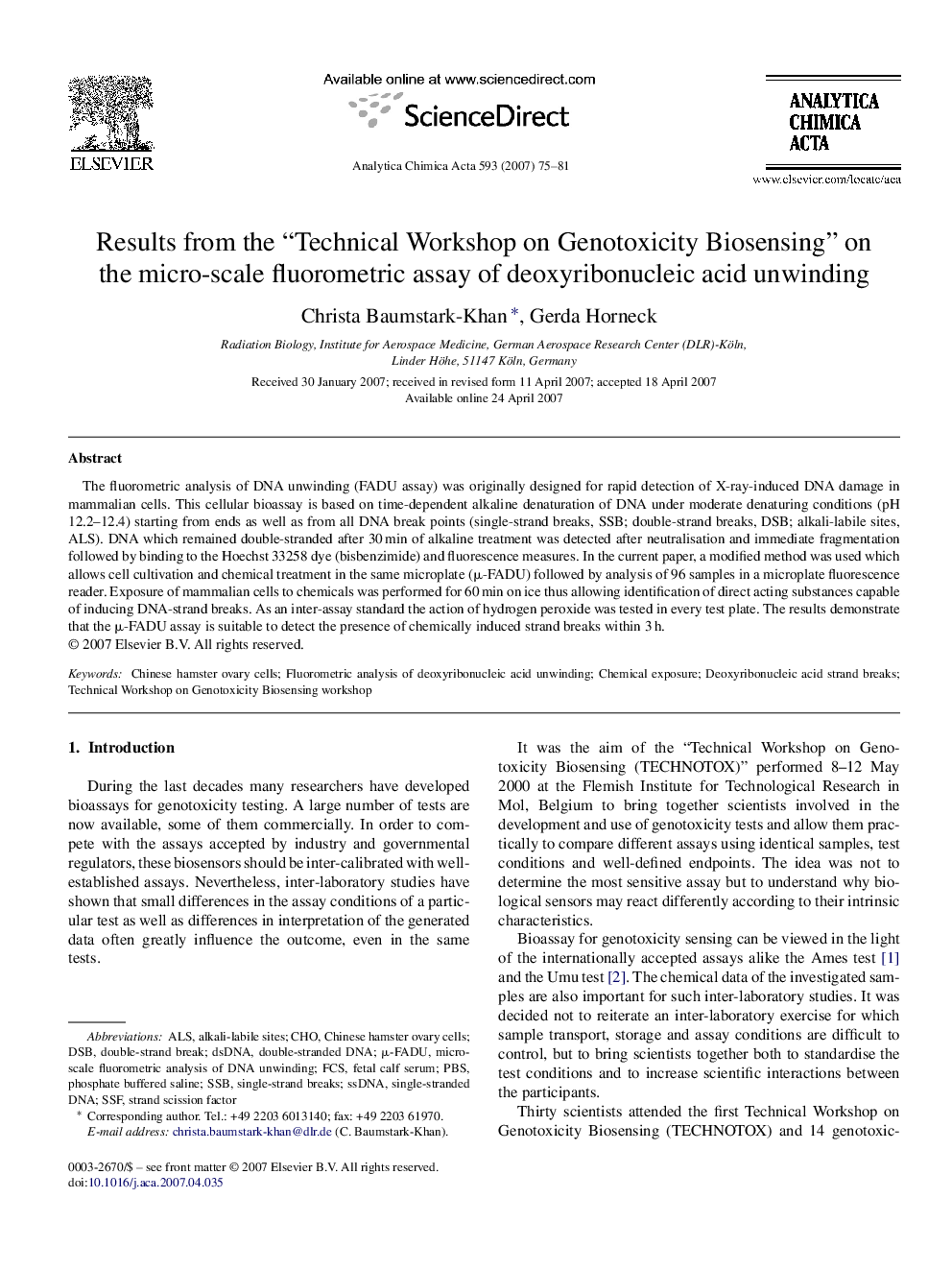| Article ID | Journal | Published Year | Pages | File Type |
|---|---|---|---|---|
| 1170880 | Analytica Chimica Acta | 2007 | 7 Pages |
The fluorometric analysis of DNA unwinding (FADU assay) was originally designed for rapid detection of X-ray-induced DNA damage in mammalian cells. This cellular bioassay is based on time-dependent alkaline denaturation of DNA under moderate denaturing conditions (pH 12.2–12.4) starting from ends as well as from all DNA break points (single-strand breaks, SSB; double-strand breaks, DSB; alkali-labile sites, ALS). DNA which remained double-stranded after 30 min of alkaline treatment was detected after neutralisation and immediate fragmentation followed by binding to the Hoechst 33258 dye (bisbenzimide) and fluorescence measures. In the current paper, a modified method was used which allows cell cultivation and chemical treatment in the same microplate (μ-FADU) followed by analysis of 96 samples in a microplate fluorescence reader. Exposure of mammalian cells to chemicals was performed for 60 min on ice thus allowing identification of direct acting substances capable of inducing DNA-strand breaks. As an inter-assay standard the action of hydrogen peroxide was tested in every test plate. The results demonstrate that the μ-FADU assay is suitable to detect the presence of chemically induced strand breaks within 3 h.
